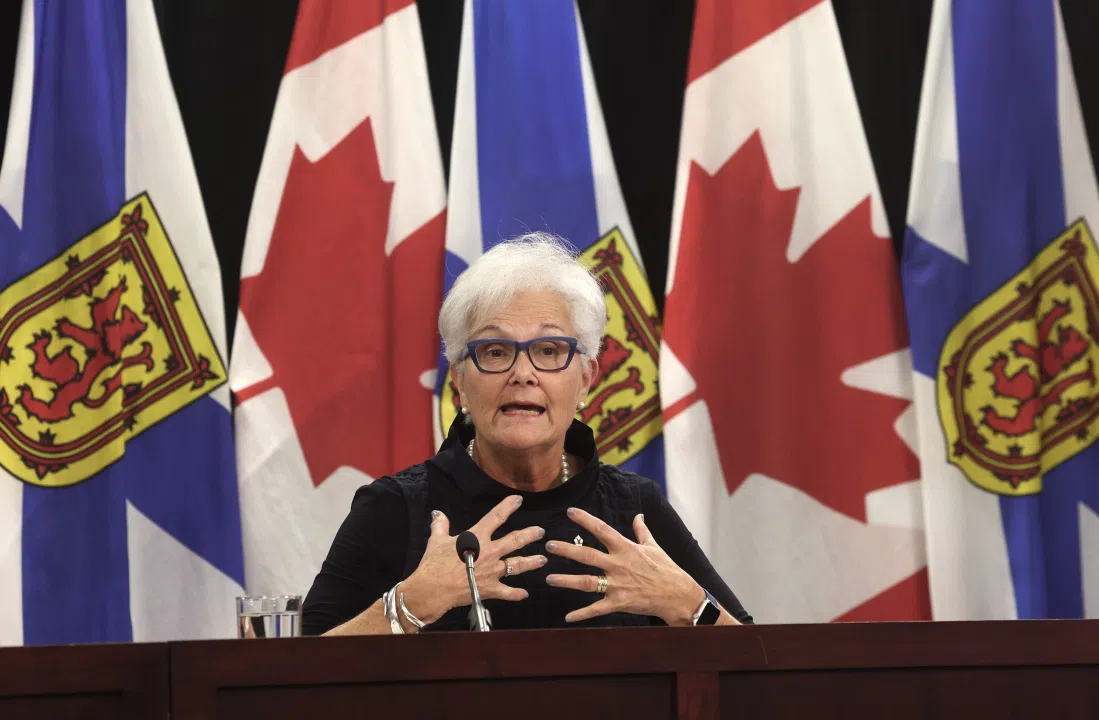After the 2020 mass shooting in Nova Scotia, some significant progress is being made to improve policing, emergency management.
But more work is needed in some areas, like dealing with intimate partner violence, and offering mental health supports to the family of shooting victims.
That is according to the second annual report released on Thursday by the Progress Monitoring Committee. They track how well the RCMP and the government implements recommendations from the Mass Casualty Commission.
Chair Myra Freeman says a lot of work has happened in the last two years, since the committee was formed.
“A lot of work has happened in that time, and at the same time, we must also acknowledge that much more work lies ahead,” said Freeman.
Since last year, the RCMP has completed two recommendations related to police reform. The federal government has already completed several parts of their efforts to reform policing as well.
However, support for victims’ family members needs the most work. It is the lowest on the scale of progress, which moves from initiated to on track and then complete, with some nuanced categories in between.
Significant change across multiple organizations and levels of government takes a lot of time, Freeman said, adding that the RCMP managed to make some changes because they could do that internally.
Freeman would not speculate when the recommendations would be totally. The committee will only be around for three years, and they have just tabled their second annual report.
She compared the committee to a train on the tracks.
The first year was laying the tracks. In year two, the train was still moving slow, when they only could quantify a few assessments.
Now the train is moving along, and organizations are able to engage and report on their progress, which let them measure the progress of many more categories.
Even if progress continues after their three years are up, she said that means the train will keep going.
“The expectation for the change will continue to be made, and that that pattern of progress will continue. We can and we must continue, and our hope is that this work never has to be done again.”










